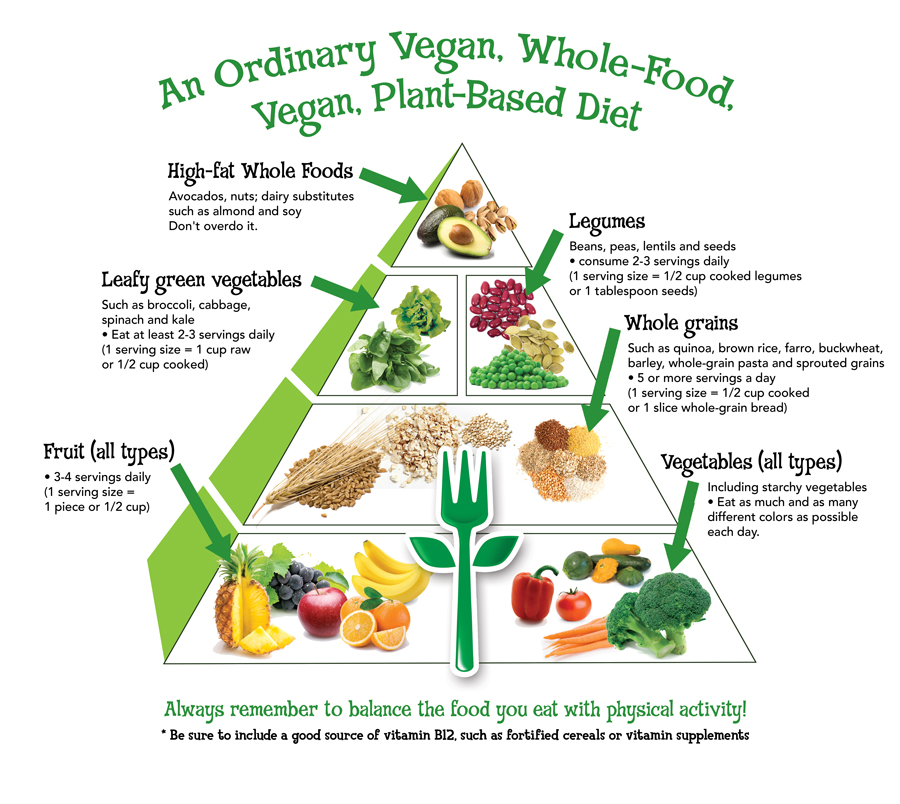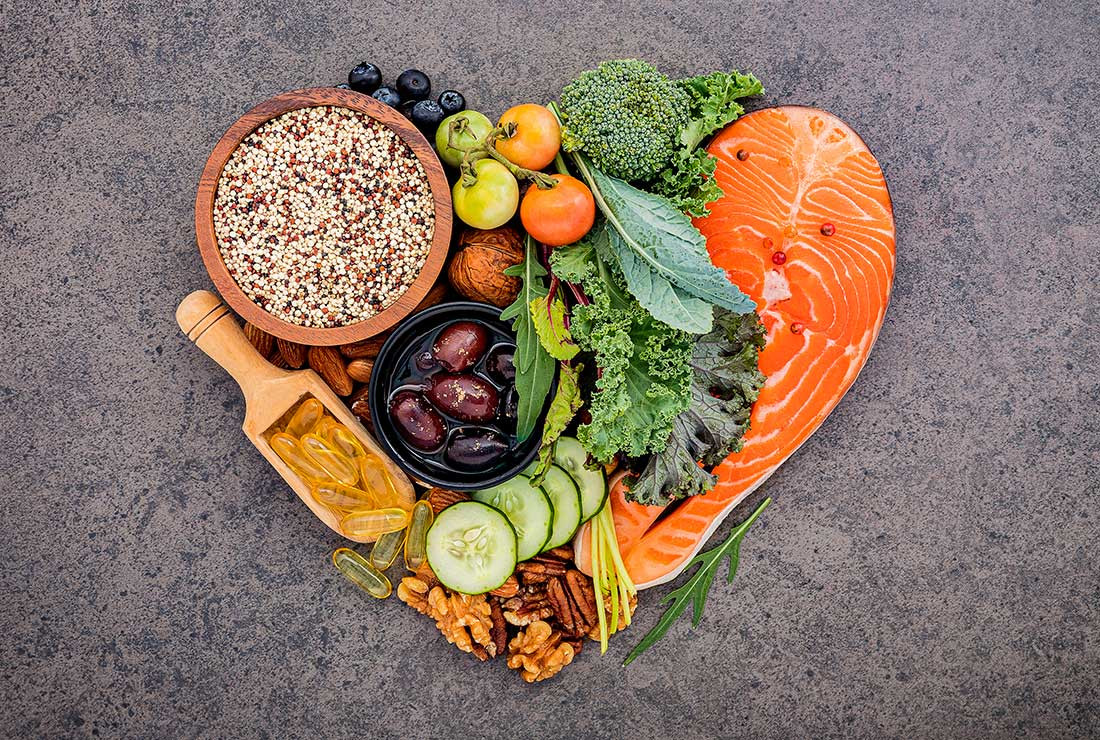Everything About Healthy And Balanced Food: Benefits of Taking On Plant Based Options
The conversation bordering plant-based diets has actually gained considerable interest over the last few years. Several individuals are checking out the potential health advantages, nutritional benefits, and ecological effects linked with these dietary selections. As individuals end up being a lot more knowledgeable about their food's impact on well-being and sustainability, inquiries develop regarding the functionalities of embracing such a lifestyle. What particular changes can one anticipate, and how might these options reshape not just personal health and wellness but additionally the planet's future?
Comprehending Plant-Based Diet Regimens
Although many individuals link plant-based diets primarily with vegetarianism or veganism, these diet plans can incorporate a large range of consuming patterns that prioritize entire, minimally processed plant foods. Such diet regimens commonly consist of fruits, veggies, whole grains, nuts, seeds, and beans, while eliminating or limiting pet products. This adaptability permits individuals to tailor their nutritional selections according to dietary demands and personal choices. Some might embrace a largely plant-based diet while still occasionally consuming meat or milk, often described as a flexitarian technique. The focus remains on including even more plant foods, which can bring about a diverse selection of meals and flavors. Comprehending these different analyses of plant-based consuming is important for valuing its ease of access and appeal in modern food society.
Health And Wellness Benefits of Plant-Based Foods
The wellness benefits of plant-based foods are substantial, offering a nutrient thickness advantage that supports general well-being. Study shows that these foods can enhance heart wellness and play a vital role in efficient weight administration. By incorporating much more plant-based alternatives, people might boost their dietary selections and advertise lasting health.
Nutrient Density Advantage
Nutrient density plays an important role in the health advantages of plant-based foods, making them an engaging option for those seeking a well balanced diet regimen. Plant-based foods, such as fruits, vegetables, beans, nuts, and entire grains, are frequently rich in crucial vitamins, minerals, and antioxidants while being lower in calories. This high nutrient density permits people to take in fewer calories while still fulfilling their dietary demands. In addition, these foods are loaded with nutritional fiber, promoting digestive system health and wellness and assisting in weight monitoring. By incorporating nutrient-dense plant-based alternatives, customers can enhance their total health, support their body immune systems, and reduce the danger of persistent conditions. Ultimately, the nutrient density of plant-based foods highlights their importance in a health-conscious way of life.
Heart Health And Wellness Enhancement

Weight Management Support
Along with promoting heart wellness, a plant-based diet plan can significantly aid in weight management. This nutritional method highlights whole foods such as fruits, veggies, legumes, nuts, and whole grains, which are usually reduced in calories and higher in fiber compared to animal-based items. The high fiber content aids increase satiation, decreasing general calorie intake. Plant-based diet plans are commonly rich in vital nutrients while low in harmful fats, making it simpler to maintain a healthy weight. Study suggests that individuals who take on a plant-based way of life often tend to have reduced body mass indexes (BMIs) and experience more successful fat burning contrasted to those that consume meat-heavy diet plans. Consequently, welcoming plant-based alternatives is a calculated option for effective weight management
Nutritional Worth of Plant-Based Active Ingredients
Plant-based ingredients are rich in vital nutrients, providing a diverse range of vitamins, minerals, and anti-oxidants that add to total health. A contrast of protein resources exposes that while pet products are often viewed as exceptional, lots of plant-based options supply ample healthy protein and other valuable compounds. Understanding the dietary value of these components can aid people make notified dietary options.
Vital Nutrients in Plants
Nutrient-rich active ingredients located in plants provide a varied range of important nutrients that add greatly to general wellness. These ingredients are abundant in vitamins A, C, and K, which sustain immune function, vision, and blood clot, respectively. Additionally, plants provide important minerals such as magnesium, calcium, and potassium, important for heart wellness, muscular tissue feature, and bone stamina. The visibility of fiber in plant-based foods help food digestion and promotes a healthy and balanced digestive tract microbiome. Antioxidants, discovered perfectly in vegetables and fruits, help battle oxidative stress and anxiety and lower inflammation. Numerous plant foods are low in calories yet high in nutrients, making them an outstanding selection for those looking for to preserve a healthy and balanced weight while making sure optimal nutrient intake.

Comparing Protein Resources
Protein resources vary significantly in their dietary profiles, with plant-based components providing distinct benefits. Unlike animal proteins, which typically have saturated fats and cholesterol, plant healthy proteins often tend to be reduced in these unhealthy elements. Legumes, nuts, seeds, and entire grains are abundant in important amino acids, fiber, vitamins, and minerals. For instance, lentils provide high healthy protein material along with significant iron and folate, while quinoa is a total protein, providing all nine crucial amino acids. view publisher site Furthermore, plant-based proteins are usually accompanied by antioxidants and phytochemicals that sustain overall health. The shift to plant-based healthy protein sources not just boosts nutritional intake yet also aligns with lasting dietary practices, lowering ecological effect and promoting lasting health and wellness advantages.
Environmental Impact of Plant-Based Consuming
As recognition of climate adjustment grows, resource lots of individuals are checking out lasting dietary options that can significantly lessen their environmental impact. Plant-based eating has arised as a substantial factor to minimizing greenhouse gas emissions, which are primarily connected with livestock production. The farming of fruits, vegetables, grains, and vegetables usually calls for fewer resources, such as water and land, compared to pet farming. Additionally, plant-based diets can lead to reduced logging, as less land is required for grazing livestock or growing animal feed. By shifting in the direction of plant-based choices, consumers can support biodiversity and promote healthier communities. Generally, embracing plant-based eating not just advantages individual health yet also represents an essential step towards ecological sustainability and preservation efforts.
Overcoming Common Misconceptions
While numerous people recognize the advantages of a plant-based diet plan, several mistaken beliefs often prevent them from totally welcoming this lifestyle. A typical idea is that plant-based diet regimens do not have enough protein; nevertheless, countless plant resources, such as beans, nuts, and tofu, provide ample healthy protein. Additionally, some presume that this diet regimen is costly, when in truth, staples like beans, rice, and seasonal vegetables can be fairly inexpensive. One more misunderstanding is that plant-based consuming is extremely restrictive, whereas it actually provides a diverse selection of foods and flavors. Numerous stress that a plant-based diet plan might lead to shortages, yet with appropriate preparation, people can get all required nutrients, consisting of minerals and vitamins, while appreciating a vast range of delicious meals. Broad Tips for Transitioning to a Plant-Based Lifestyle
Making the shift to a plant-based way of life can be an enriching experience, though it frequently calls for some guidance to navigate the initial adjustments. First, individuals are urged to begin gradually, including even more fruits, vegetables, vegetables, and whole grains right into their meals while minimizing meat and dairy products intake. Meal planning is necessary; preparing a weekly menu can help alleviate the adjustment and avoid last-minute harmful selections. Checking out new dishes and cooking techniques can additionally preserve and boost the experience exhilaration about plant-based consuming. Additionally, signing up with support system or areas can provide motivation and share useful ideas. Staying notified regarding nourishment warranties well balanced dishes, stopping shortages while cultivating a healthy, satisfying plant-based lifestyle.

Delicious Plant-Based Meal Concepts
Exploring scrumptious plant-based meal ideas can influence individuals to accept a much more nutritious diet regimen. One preferred option is a passionate quinoa salad, including cherry tomatoes, cucumber, and a zesty lemon-tahini clothing. Another fave is a savory lentil stew, loaded with carrots, celery, and fragrant herbs, excellent for a soothing dinner. For morning meal, over night oats made with almond milk, chia seeds, and topped with fresh berries give a healthy begin to the day. In addition, a dynamic veggie stir-fry with tofu and a range of vibrant veggies can be a quick yet satisfying dish. Luscious avocado salute on whole-grain bread, sprinkled with seasonings and seeds, uses a basic yet tasty snack. These meals display the variety and richness of plant-based consuming.

Frequently Asked Concerns
Can a Plant-Based Diet Offer Enough Protein?
The question of whether a plant-based diet plan can give enough protein is typical. Countless resources, consisting of legumes, nuts, seeds, and entire grains, can satisfy healthy protein needs efficiently, sustaining a nutritious and balanced diet regimen for individuals.
Are Plant-Based Diet Plans Suitable for Children?
The viability of plant-based diets for youngsters depends upon careful preparation. Adequate nutrients need to be assured, consisting of healthy proteins, minerals, and vitamins. With proper assistance, such diets can support healthy growth and development in kids.
How Do I Eat in restaurants on a Plant-Based Diet?
Eating out on a plant-based diet regimen involves looking for dining establishments with varied food selections, requesting adjustments, and checking out vegan-friendly options. Planning in advance and communicating nutritional preferences can enhance the eating experience while keeping dietary selections.
What Prevail Irritants in Plant-Based Foods?
Usual allergens in plant-based foods consist of soy, gluten, nuts, and seeds - Plant Based Chicken. People adhering to a plant-based diet plan needs to be conscious of these allergens and review labels carefully to avoid unfavorable reactions and ensure risk-free usage
Can Plant-Based Diets Assist With Weight-loss?
Research study shows that adopting a plant-based diet regimen might facilitate fat burning because of its typically lower calorie thickness and higher fiber material. This combination can boost satiety, aiding people handle their calorie consumption properly. Many individuals connect plant-based diets mainly with vegetarianism or veganism, these diet regimens can encompass a large range of eating patterns that prioritize entire, minimally refined plant foods. Nutrient density plays a vital duty in the health benefits of plant-based foods, making them a compelling selection for those seeking a balanced diet. Plant-based diet regimens have been shown to considerably improve heart wellness, as they why not look here commonly have aspects that sustain cardiovascular feature. In addition to advertising heart health and wellness, a plant-based diet regimen can substantially help in weight management. An usual idea is that plant-based diet plans do not have adequate protein; nonetheless, countless plant sources, such as beans, nuts, and tofu, provide adequate healthy protein.